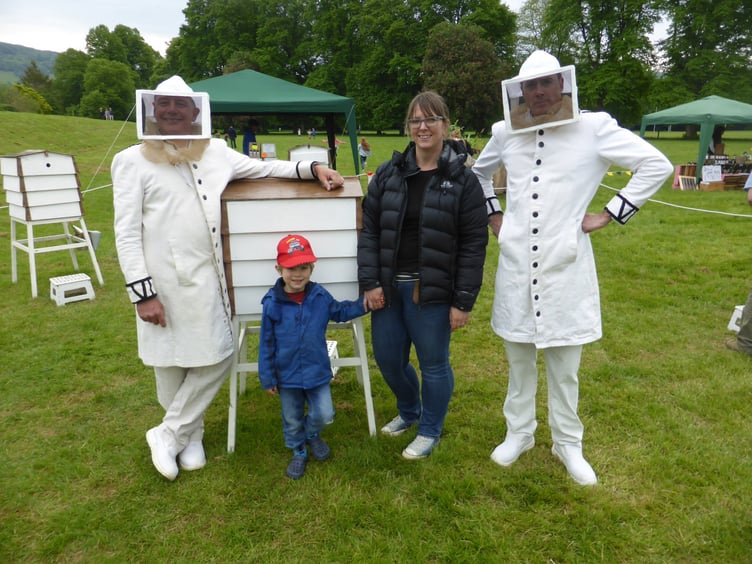I had a tremendous response to last week’s column about the RHS and Wildlife Trust’s campaign to ‘reimagine’ your lawn – or basically, let the grass grow a bit so the pollinators can benefit from the flowers, like dandelions and clover, within the grass.
Many readers suggested the same thing – wouldn’t it be a good idea for the Councils to adopt this method of ‘reimagining’ for the verges, roundabouts and other ‘green areas’.
Well, the good news is that Monmouth is ahead of the curve – or should that be ‘ahead of the turf’.
In 2013 the charity ‘Bees for Development’ established a ‘Bee Friendly Monmouthshire’ campaign to address the dramatic decline in the numbers of bees and other pollinating insects including butterflies, moths and hoverflies in their home county of Monmouthshire.
The campaign for Monmouthshire County Council to adopt a Pollinator Policy was successful and the Bee Friendly Monmouthshire group went on to help implement the Welsh Government’s Action Plan for Pollinators at county level.
The Action Plan was drawn up to address the dramatic decline in the numbers of all pollinating insects – a decline caused by the loss of hedgerows, woodland and wild areas and the food sources they provide, and the overuse of insecticides.
As well as intensive farming methods having detrimental effects on much of our wildlife, it is worth remembering that gardeners play their part too – often unwittingly.
Hybrid plants and their ‘pretty’ double flowers are devoid of nectar and pollen and are therefore ‘empty larders’ for our pollinators. I’m sure that when most people realise this, they would choose to provide ‘well stocked larders’ instead – and if you’re not sure which plants are ‘full of food’, the garden centres and nurseries are marking suitable plants with ‘Bee Friendly’ labels, so simply choose those.
Bee Friendly Monmouthshire (www.beefriendlymonmouthshire.org) have also published a Manifesto calling for wider appreciation of the value of hedgerows and described best practice for hedgerow maintenance. It is upsetting to realise just how much devastation hedge cutting at the ‘wrong’ time causes to our hardworking wildlife. Flowering wood that is removed before it has a chance to bloom is prevented from providing essential provisions for pollinators.
Whilst it is understandable that not everyone will be aware of the intricacies of some of these issues, it is completely incomprehensible that once understood, appropriate changes are not made.
Bee Friendly Monmouthshire have been instrumental in raising awareness of such issues and also instigating many beneficial changes, and are currently inviting people to be part of a team that ‘makes a difference’. They are a wonderful, informal, enthusiastic and effective bunch and if you have some time to spare and energy to impart, please contact Rose Parkhouse, Tel: 01291 621914 or email [email protected] to find out more.

Comments
This article has no comments yet. Be the first to leave a comment.